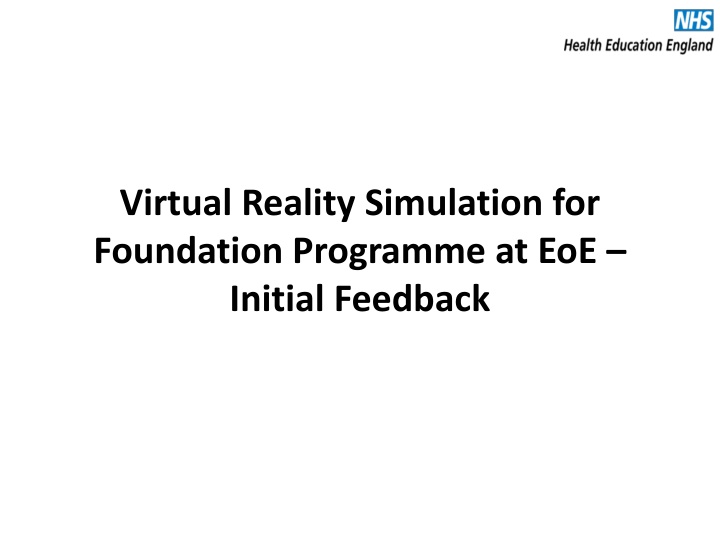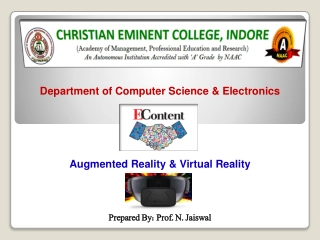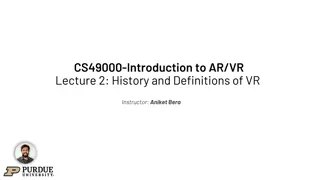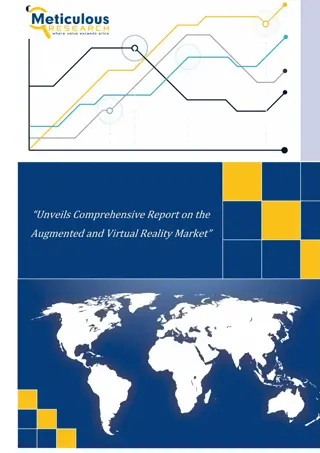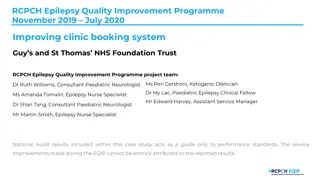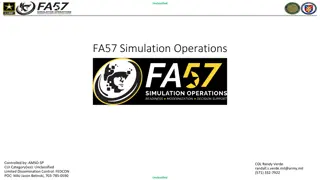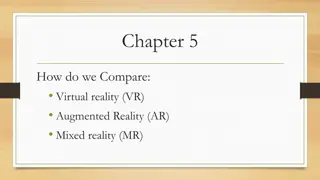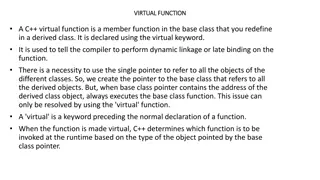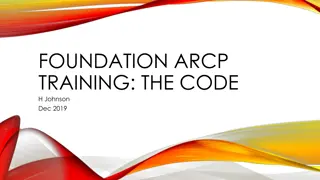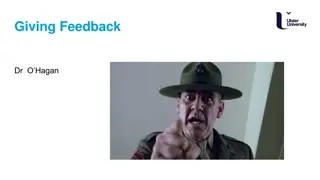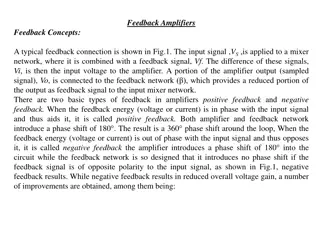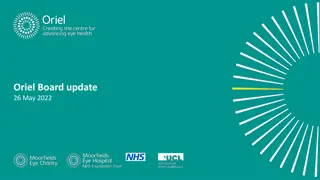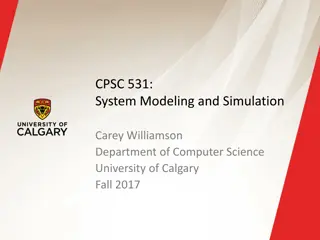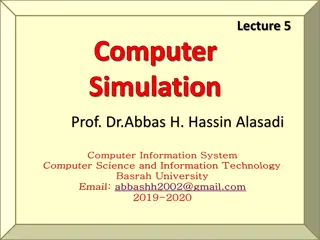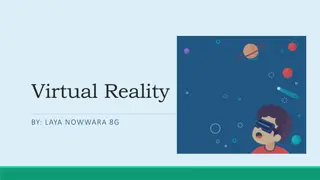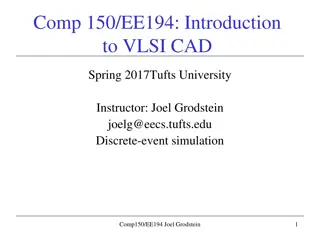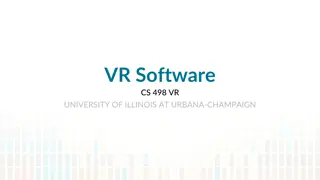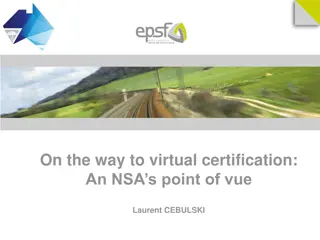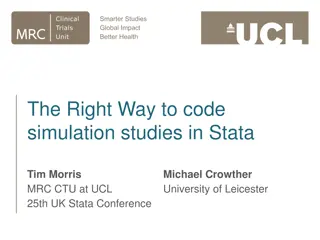Virtual Reality Simulation for Foundation Programme Initial Feedback
Virtual reality simulation feedback from trainees and facilitators. Positive experiences, engagement challenges, and technical issues encountered during sessions
Download Presentation

Please find below an Image/Link to download the presentation.
The content on the website is provided AS IS for your information and personal use only. It may not be sold, licensed, or shared on other websites without obtaining consent from the author.If you encounter any issues during the download, it is possible that the publisher has removed the file from their server.
You are allowed to download the files provided on this website for personal or commercial use, subject to the condition that they are used lawfully. All files are the property of their respective owners.
The content on the website is provided AS IS for your information and personal use only. It may not be sold, licensed, or shared on other websites without obtaining consent from the author.
E N D
Presentation Transcript
Virtual Reality Simulation for Foundation Programme at EoE Initial Feedback
Initial Survey Between end of Sept - beginning of Nov 2019 19 responses from 15 Trusts Thank you very much for everyone s time!
Q: If your Trust has not started facilitating VR sessions, what are the difficulties in launching this? We are not facilitating the session the students have free access to a VR suite and are accessing it when it suits them So far every time we have tried to use it, it needs updates
Feedback from trainees Very good and positive, great learning experience Useful, interesting Good practice on A to E assessment Realistic in terms of patients in front of you More VR sessions please Very useful to be presented with scenarios in a similar environment to one you would face in hospital Great, everyone loved it, easy to use no complication at all Generally positive, difficult to watch other 4 scenarios on the laptop, having it projected would make it better. Scenarios were OK They appear to be enjoying it but engagement can be difficult A good learning tool, looking forward to doing the other scenarios at home Very good, fun, not a replacement for "real" simulation but compliments it There were login issues initially but many have completed some scenarios. Recently 2 F1 trainees have not been able to put on their headset. They both wear glasses. (This has been conveyed to the VR support team) We have so far had a Intro session with trainees, facilitator-led sessions start from 22/10/19 (10 planned until April 2020)
Feedback from facilitators Good and positive Using the time to prioritise during the scenario, going back to ABC approach Will not replace high-fidelity simulation but a good additional tool for teaching Interesting and better than they thought it would be. Suspect once novelty wears off for the trainees they will get fed up with it. Need significant admin support at the time to get it set up/ fix bugs Engages the participant and provides a wide range of investigations and examinations with realistic feedback which is sometimes lacking in "real" simulation The workshop greatly expanded my understanding of mindfulness and gave me great understanding of how it can be used & taught to develop trainees self-awareness/self-management skills Once set up & connected to WiFi, enthusiastic about the scenarios Better than expected, but does it require facilitated learning? Trainee needs some help with the orientation and process with the first scenario. Thereafter very minimal input Positive, works well when internet does - which is not necessarily always Potentially very time consuming and needs future proofing in terms of facilitator consistency Not entirely convinced about the benefits, too early to give an opinion We have had some login issues, losing WiFi through a scenario, not being able to put on the headset etc., but I believe these are just 'teething' issues There was a software update to the program which needed tech support, the OMS tech support team are extremely helpful.
How are VR sessions best incorporated into the Foundation teaching programme? Weekly Simulations Weekly drop in VR sessions that trainees can book onto/ pop in and if kit available The session was easier to set up and run with the trainee sat on a swivel chair (no standing up and height adjustment for the sensor). The session really would benefit from being projected on to a large screen (consider providing connectors for this which are not easily available to NHS Trusts). Check the laptops weekly as many updates have been needed recently. The laptop speaker alone is insufficient to enable observers to hear the scenario properly Scheduled facilitated sessions that trainees are allocated to. Certificate of attendance after (for trainees and supervisors), indicating scenarios covered. 5 scenarios mandated, so avoid duplication in rest of teaching programme We have found that allowing the candidates free access is logistically easier for us to achieve however it is still early in their year to gage how effective it is One in-situ (high fidelity) simulation and 2 VR simulations for each of our foundation year 1 and 2 trainees. (Undertaking a study to see which works best - VR first or in-suite first) 1-2 facilitated sessions and the remainder self-directed We have decided to run the sessions with 5 per group, each facilitated session will be for 10 trainees (2 facilitators); each trainee will log onto the OMS system and undertake 1 scenario. The other 4 trainees will watch the VR scenario and then all participate in a group discussion of the experience (talk about what happened, analyse/clarify any uncertainty and then set action points to take back into the clinical setting). By attending this session all trainees will receive a certificate for completing all 5 mandatory scenarios.
Any issues with VR? None So far no real issues, it is proving to be quite a positive experience Cases done aren't saving or registering to my account The main concern as mentioned above seems to be the ability of the 4 trainees not undertaking the scenario to watch and listen to the scenario on a laptop screen and through laptop speakers alone Can only access in hours, when admin staff available to sign kit in and out The headset does not fit the person who wears glasses. These need to be more adjustable/ flexible. Our biggest concern has been the expectation to deliver VR without facilitation funding Wi-Fi stability and software updates are time consuming Needs some time for the trainee to familiarise themselves with the instruments
Summary of feedback Facilitators ranges from Consultants (Sim + ES), SpRs, Education Fellows Positive trainee experience Good learning tool - useful for trainees to be presented with scenarios in a similar environment to one they would face in hospital Engages the participant and provides a wide range of investigations and examinations with realistic feedback Useful as an addition to high-fidelity simulation Technical issues: Wi-Fi connection Projection of laptop to allow observations by the other trainees Headset adjustment Scenarios not saving actions Laptops to be checked weekly to ensure updates are run Question - Does this need facilitated training? Question - Funding for facilitator? (covered by Foundation Training Funding to the Trusts as this replaces some of the previous generic teaching)
